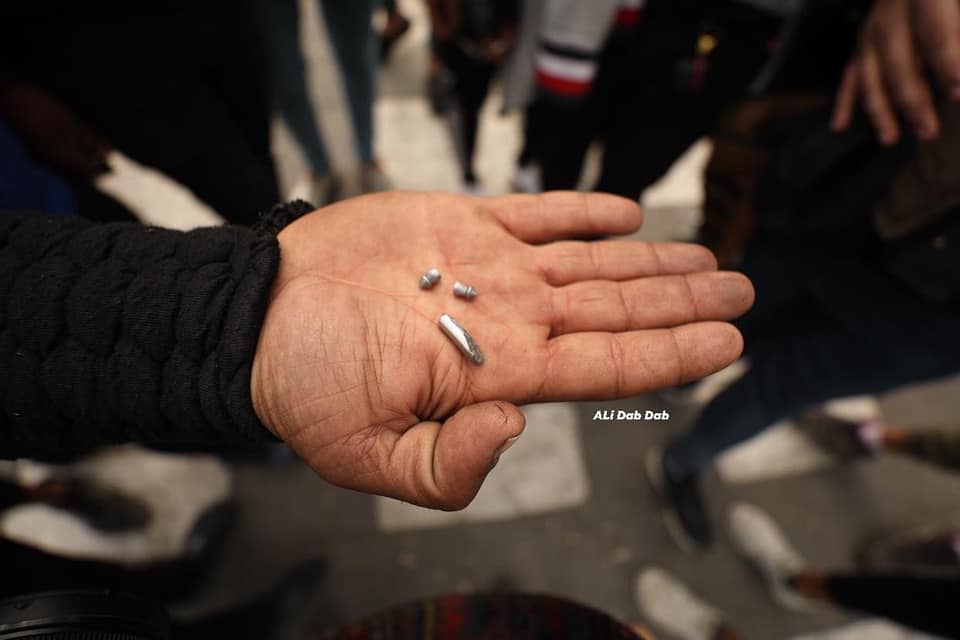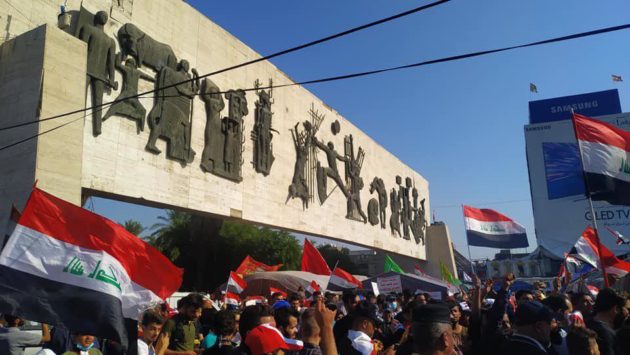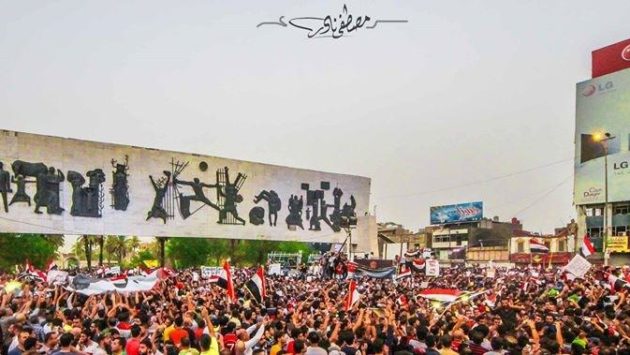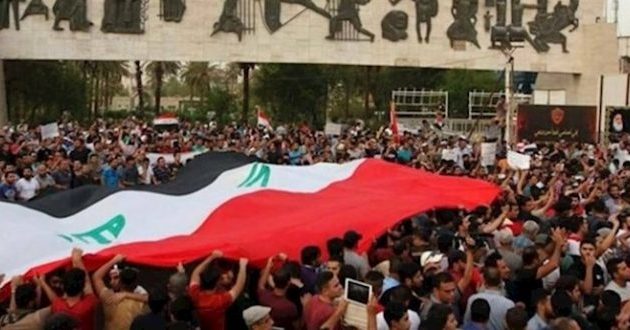Iraqi Security Forces Use Hunting Weapons on Demonstrators
AlAraby
Baghdad- Zaid Salim
30 January 2020
The continued crackdown by the Iraqi security forces against demonstrators in Baghdad and other cities in the south and center of the country has reached a new level of atrocity as recent reports reveal that security forces are now using of hunting rifles, known in Iraq as “stoning” rifles which fire “iron balls” to keep nonviolent protesters in check. This clear and brutal escalation of violence comes alongside still more arrests and kidnappings of activists. More specifically, about 30 demonstrators have been injured by gas and live bullets, while in Karbala the death of another protester was announced, fatally wounded by injuries he sustained days ago by fire Iraqi Security Forces
Medical teams from Baghdad have confirmed that dozens of protesters have been wounded by riot police wielding guns; some are in serious condition, especially grave are injuries to the eyes and head. This excessive force falls directly in line with earlier attempts to end the protests which have gripped Baghdad and southern and central Iraq for over 120 days.
Sources from Medical City Hospital in Baghdad told the Al-Arabi Al-Jadeed website that “dozens of demonstrators have suffered injuries after being hit by the “iron balls” which can penetrate the body and require surgical intervention to remove.” Doctors point out that “the security forces continue to be alarmingly violent with the protesters, and many are lying in Baghdad hospitals because of the repressive methods that are unconscionable given the peacefulness of the protesters.”
One doctor said that “hospitals and health centers notified the Ministry of Health about the brutal escalation of violence against protesters in Baghdad,” noting dozens of new injuries in the past three days alone. In response, the ministry “informed hospital managers that it addressed the Ministry of the Interior and Prime Minister’s Office regarding this matter. “
Activist and protester Ahmed Al-Ghazali confirmed to Al-Arabi Al-Jadeed that the security forces in Baghdad are still firing live bullets at the demonstrators, even though the resigned Prime Minister Adel Abdul-Mahdi had promised the people and demonstrators that he would prevent the use of bullets and hold all officers responsible for excessive violence fully accountable for their actions. These promises, however, have proven to be empty — in reality, the violence persists and is compounded by the involvement of independent armed militias who abuse protesters alongside the police and riot police.
Al-Ghazali added that “the extent of the demonstrations has expanded, and the demonstrators are seeking to penetrate deep into the popular Shorja markets; because of this growth, Iraqi forces are engaging in unprecedented repression, using masked fighters belonging to armed factions which are loyal to Iran.” He noted further that “some instances of attacks on demonstrators were carried out by gunmen who did not wear official military uniforms and carried with them assault rifles that had already been used against the protesters.”

Ali al-Bayati, a member of the Commission for Human Rights in Iraq, corroborated reports saying that “the Commission has documented many cases of injuries from new weapons used by the Iraqi security forces against the protesters, many of which are rifles typically used to hunt wild animals.” He told “The New Arab” website that “the policy of repression has proven unsuccessful as the deaths and injuries among the protesters has not ended the wave of demonstrations. The government must stop its own forces and militias from the continued use of brutal and ineffective violence.”
“Day by day, the Iraqi government is losing international solidarity and cooperation by supporting the political process at home,” Al-Bayati said, “and this indicates the end of the ruling class and the armed parties and factions it’s made up of. This is because the world increasingly judges countries from the perspective of how effectively they uphold human rights.”
He pointed out that “the whole world has come to know that the security forces in Iraq are led by mysterious parties, and the government does not know much of what is happening outside its own walls. There seems to be a tremendous amount of decision-making that is occurring beyond the official halls of government and this suggests that Adel Abdul Mahdi and his office are not respected as ones who can leads the country.”
Since last October, Iraq has witnessed nonviolent demonstrations with protesters calling for a reform of the political process, a solution to rising unemployment and the improvement of basic living conditions for all. These peaceful protests led to the overthrow of the Prime Minister Adel Abdul-Mahdi last November, and demonstrators have persisted despite being met by acts of excessive violence from security forces who use live bullets and tear gas, kidnapping and the brutal assassination tactics agains nonviolent activists.




